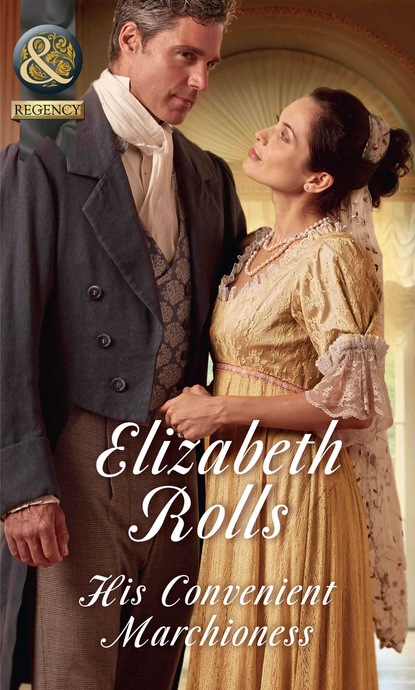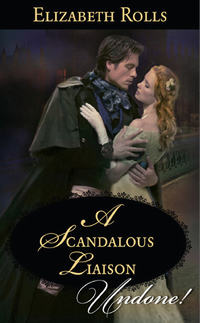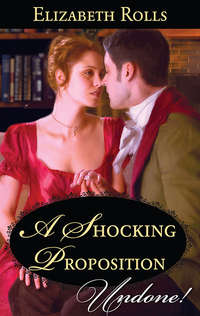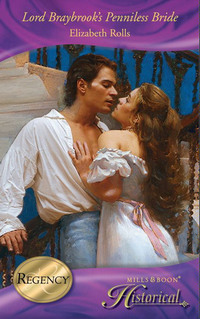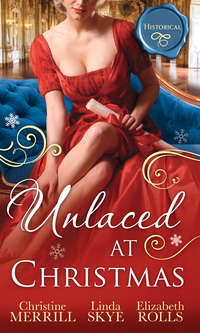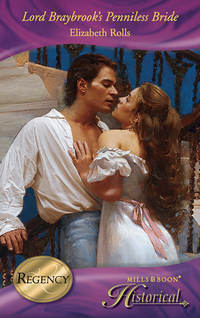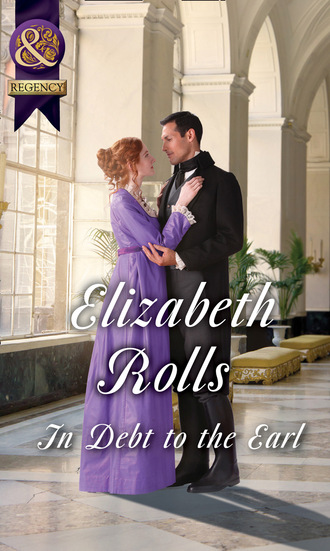
Полная версия
In Debt To The Earl
‘Aye, guv.’
‘You’ve done quite well, Jig,’ Kilby said. ‘I’m impressed.’
* * *
It was probably a waste of time to call at Hensleigh’s lodgings again. James told himself that as he strolled along the north side of the Strand the next day. His visit to the Bolt-in-Tun had netted the information that Hensleigh had bought a ticket for Bath. James had discarded the notion of driving down himself. Tracking Hensleigh would take time and might alert him. The last thing he wanted was for the fellow to run altogether.
The man had to return sooner or later to his daughter. But he wouldn’t wager a farthing against Hensleigh finding another bolt hole, so keeping a close eye on said daughter made complete sense.
Lucy.
He lengthened his stride. Her name was no concern of his. Nor was she, or her soft coppery curls, any concern of his. Except that she was damnably inconvenient. She might not be any concern of his, but he couldn’t quite put aside the niggling question of her fate if he brought her father to utter ruin.
Fitch’s real friendly with Lu. Gives ’er money sometimes, ’e does.
He gritted his teeth. It was highly likely that Lucy Hensleigh had already guarded against being tangled in her father’s fate in the form of the friendly Fitch. Not hard to imagine what a man would give her money for.
You could do better for her than the sort of protector she’ll have picked up around here...
He pushed the thought aside. It would be tantamount to blackmail. ‘I’m going to ruin your father. Bed with me and you won’t go down with him.’ Charming, and he was damned if he wanted an unwilling mistress. He doubted Miss Lucy Hensleigh liked him above half, anyway. There was no reason why she should like him and she would like him even less if she uncovered his deception. He didn’t much like himself for having done that.
She’d like you well enough if you were getting her out of the gutter...
As it was...the merry, dancing sweep of a violin scattered his thoughts. He slowed, glanced around and spotted the fiddler on the other side of the narrow street near a corner. And frowned. It was a lad. But the sound of that particular fiddle, and the dancing, jigging tune seemed familiar. He looked more closely at the lad.
A mere stripling, barely breeched from the look of him, he wore an ill-fitting shabby coat and a cap hid his hair. A pale cheek was tucked lovingly against the mellow timber of the instrument as he stroked magic from it. Another cap lay at his feet. As James watched several people tossed in coins. Another, smaller boy hovered nearby.
Dodging between the traffic, James crossed to the south side of the street. He felt in his pocket and found a coin. Not seeming so much as to glance at the fiddler and his companion, James dropped the coin in the cap as he passed.
* * *
Lucy watched Mr Remington go as she continued to play. Her stomach had tied itself in knots. Why, she had no idea. It was no bread and butter of his if she kept herself from starving by playing in the street. Although, since he already owed Papa money, she supposed he might be annoyed if he’d realised whose cap he’d dropped money into. She glanced down and her playing faltered. A crown gleamed fatly amongst the pennies and farthings—more than she’d earn in a week.
‘Fitch—’
He was already scooping it up. It disappeared safely into some fastness in his clothing. Sometimes people would pretend to lean down to put money in, but actually take money out. Fitch’s watchful eye prevented that, for which she gave him a share of the take. The crown meant money for the rent and a hearty meal for both of them tonight.
‘Generous cove,’ he said.
‘He’s the one I told you about.’ Lucy kept playing.
‘Right.’ He stepped back, leaning against the wall again.
Lucy changed the tune, sliding into a sentimental ballad she’d heard someone singing the week before. She played with the melody, embellishing it here, tweaking it there. A few people stopped to listen and more coins tinkled in the open case. She smiled, nodding thanks as they moved on, and slipped back into a dance tune.
‘Bloke’s comin’ back,’ Fitch muttered.
Her breath caught as she played, watching from the corner of her eye as Mr Remington passed on the other side of the street. This time he didn’t glance their way and the twisting knot in her belly loosened. Clearly he’d gone to her lodgings, found her not there and left.
She played on, smiling as people left coins, keeping a watchful eye on the weather, trying not to think about Mr Remington. He meant nothing to her. She had to think of important things—such as how to climb out of the hole her father was digging for them.
You could write to Uncle Bertram—Aunt Caroline might write you a reference. She might know someone who needs a governess, or a companion.
Four years ago, after Grandmama died, they had forced Papa to take her away, since they had not wished to house her. A reference would not cost them anything. Except of course they would probably refuse to pay for the letter she sent them.
A chilly breeze skittered along the pavement, fluttering skirts and awnings, bringing with it the steely scent of rain. Thunder rumbled a warning in the distance. She looked up at the sky; heavy clouds threatened.
‘Reckon it’s time to pack up.’ Fitch was watching the sky, too. ‘No folks’ll be willing to part with a groat if ’n it comes on to rain like it’s makin’ to.’
Lucy was already loosening her violin strings. She wouldn’t risk a drenching for her elderly instrument. She slid the violin and bow back into the case propped against the wall behind her and fastened the hinged end.
She looked at Fitch. ‘Are you hungry? I am.’ A slight understatement, that. She was starving. Last night’s dinner had been scanty and there’d been nothing for breakfast either this morning or yesterday.
‘Yeah.’ Fitch scooped up the day’s take.
‘Well,’ Lucy said, ‘we could break that crown buying dinner and split the remainder.’
The boy nodded. ‘No one won’t notice you in them clothes if we go to the Maid an’ Magpie. Not if you don’t speak too much.’
Lucy’s stomach flipped. No one ever seemed to notice that the ‘lad’ playing fiddle was in fact a lass, but she’d never gone into a tavern.
‘Walk into the Maid in yer own clothes an’ you’ll get yer bum pinched or worse,’ Fitch said. ‘An’ if you do go back an’ change there’ll be more folks in there. Come on,’ he urged. ‘Be raining frogs in a coupla minutes.’
She dragged in a deep breath. ‘All right. Let’s go.’
He gave her a cheeky grin. ‘It’ll be fine. You’ll see. The Maid does a bang-up steak-an’-kidney pie.’
* * *
The bang-up steak-and-kidney pie warmed Lucy as she hurried home along the rain-slicked street. As well as her fiddle, she had more food tucked under her arm. She had taken off her coat and swathed the violin case in it and she broke into a run as the tunnel leading into Frenchman’s Yard came in view. In addition to the bread and cheese she had bought for breakfast, and the treat of a bag of jellied eels for supper, there was a whole shilling left over for the rent. Tomorrow she could earn more money, although she couldn’t hope for such luck as had favoured her today.
She ducked into the shelter of the tunnel and eased back to a walk, catching her breath. For once no one was snoring off a pint of gin in the putrid passageway. She held her breath and hurried through, coming out blinking into the relatively fresh air of the yard.
Although the rain had eased, the wind had turned bitter, slicing to the bone, and she dashed across the yard and into the lodging house. Her landlady did not look out from the kitchen door at the back of the dingy hall and Lucy hurried up the stairs, ignoring the ominous creaks.
She dug into the pocket of her breeches for the key and pulled it out, juggling her fiddle and the package of food. Her cold fingers fumbled the key into the lock and turned it. Lord, she’d be glad to get out of these icy, sodden clothes. Perhaps when she gave Mrs Beattie the extra shilling, the woman would let her dry them, or even herself, by the kitchen fire. Sometimes Mrs Beattie could be obliging about things like that. And sometimes not. Although an extra shilling was an excellent sweetener for the woman’s uncertain moods.
Closing the door, she breathed a sigh of relief. Home. Such as it was. With a shilling and supper.
‘A profitable day, Miss Hensleigh?’
Her breath jerked in on a startled gasp as she dropped the key and whipped around, bobbling her belongings. Somehow she saved the violin, grabbing it frantically as it slipped, but the food scattered on the floor.
Back pressed to the door, her eyes adjusting to the gloom, she saw Mr Remington rise frowning from the chair by the empty grate. Sick fear swooped through her with understanding. He’d recognised her. Known she was out and deliberately let her see him leave. Then he’d circled around to wait, realising that she’d never come home alone knowing he was here.
She found her voice through the choking fright. ‘Mrs Beattie will come up if I scream.’ She hoped. Mrs Beattie ought not to have let him in.
Mr Remington’s frown deepened as he came towards her. ‘Why would you scream now, if you didn’t when I startled you?’
Was he an idiot? Or simply so arrogant he thought she’d welcome his attentions? She reached behind her for the door knob just as he bent to pick up the fallen loaf of bread. She stared.
‘What are you doing?’ Her voice was barely a squeak.
‘Picking up your—ah, bread.’ He straightened. ‘Where should I throw this?’
‘Throw it? Just put it on the table, please.’
He stared at her. ‘It’s been on the floor! Surely you aren’t—’
‘I can’t afford to be quite so nice in my notions as you!’ Anger swept away fear. ‘Place it on the table, if you please.’
His jaw dropped. ‘You’re still going to eat it?’
‘Unless you’ve walked something in, the floor is clean enough.’ For heaven’s sake! She’d swept and scrubbed yesterday. Her cheeks burned with humiliation as, saying nothing, he put the loaf on the table.
She set the violin down and scooped her supper of jellied eels back into its bag.
‘I’m sorry.’
At the sound of his deep voice, she nearly dropped the eels again.
‘What?’
‘Is it so hard to believe I’d apologise for startling you into dropping your supper?’ A shade of annoyance crept into his voice.
She looked up. ‘Oh.’
‘Although,’ he went on, picking up the cheese, ‘I’m damned if I know why you thought you needed to scream afterwards. You know why I’m here.’
‘Do I?’ she asked. ‘You sneak back here and wait for me in the dark, despite the fact that my father obviously hasn’t returned, and wonder why I think I might need to scream?’
Even in the bad light she saw two spots of scarlet spring to his cheeks as he stared at her. For a moment he said nothing. Then, ‘That, Miss Hensleigh, is insulting. You thought I’d assault you?’
‘The possibility occurred to me,’ she said, refusing to back down, even though his outrage was obvious and she was fairly sure she’d been mistaken. But something niggled at her. If she was mistaken, then why had he come back? ‘It’s not as though I know you at all,’ she pointed out. ‘Let alone well enough to judge your character!’ And given the foolish attraction she seemed to have for him, it was doubly important to be on her guard. Why had he come back?
* * *
James reined in his anger, forced himself to see her side. She had come home to find a near-stranger waiting in the dark. And it wasn’t as if he had a particularly good reason for waiting. He gritted his teeth. She wasn’t to know that while he might seduce a willing woman, he certainly wouldn’t assault or force one.
‘I apologise.’ That made two apologies inside of five minutes. ‘So your father hasn’t returned?’
‘No.’
He waited, but she said nothing more, merely got a dish from a shelf and the—what was that mess in the bag?—jellied eels on the table and put them with the bread and cheese he’d salvaged. The plate rattled a little as she set it down and he looked closely.
Damn it, she was shivering, her lips nearly blue. ‘You should get out of those wet clothes,’ he said, trying very hard not to notice the long, lovely line of her legs in the breeches and wrinkled stockings. Or the way the damp sleeves of the rough shirt clung to her slender arms. He could only thank God that she wore a waistcoat. ‘Tell me where the fuel is and I’ll light the fire.’
Her chin lifted. ‘There’s no need.’
‘The devil there isn’t,’ he said. ‘You must be half-frozen.’
Her soft mouth set in a stubborn line he was coming to know. ‘I’ll be perfectly fine once I change. Which I’ll do when you’ve left.’
‘You need a fire,’ he insisted. ‘Where is the fuel?’
‘There isn’t any,’ she said at last. ‘I... I forgot to order it.’
Colour stained her cheeks again and at last the truth sank in—she couldn’t afford fuel. Her bastard of a father had left her high and dry to shift for herself and she couldn’t afford fuel. That was why she’d been playing on the street.
He strode to the door.
‘You’re leaving?’
He paused with his hand on the latch. Did she have to sound so damned relieved? ‘I’m getting fuel,’ he growled. ‘Change while I’m gone.’
* * *
Lucy stared at the door which had shut with something very like a bang. Who did he think he was, ordering her about? Was she a child? Incapable of thinking for herself? She wasn’t answerable to him.
But somewhere inside, beyond the reach of chilly clothing, there was a comforting warmth that someone cared enough to scold about wet clothes and insist on a fire. Even though he’d find it impossible to obtain wood or coal at this hour, it was kind of him to try. Although if he were planning to wait and see if Papa showed up this evening, he might be thinking of his own comfort.
She glanced around. She daren’t change in her curtained-off corner in case he came back. Shivering, she collected her gown from its hook in the corner, holding it out at arm’s length to keep it dry, and hurried into the other room.
By the time she had peeled off her damply clinging clothes, rubbed herself down briskly and dressed again, she’d heard the door open and close. Assured footsteps sounded. She was still cold. Not the bone-numbing cold of before, but cold. A fire would have been lovely, but a dish of jellied eels later would do. She sighed. Good manners dictated that she offer bread and cheese to her unwelcome guest.
She opened the door to the parlour. At least he wouldn’t have found fuel, so she wouldn’t have to pay him for—
A heaped bucket of coal stood beside the hearth with a pile of kindling and Mr Remington was crumpling up old newspaper. She swallowed, saying farewell to the rent money.
‘Where did you get that?’
He kept crumpling. ‘Your landlady.’
‘Oh. Er...thank you. I’ll pay her in the morning.’ And there, right there, was a lie—she didn’t have enough money. She steeled herself. ‘How much was it?’
‘I’ve paid her.’
‘Paid her?’
‘Yes. Come and sit down.’ He began to set kindling on top of the paper with a quick efficiency that surprised her. Not at all like her uncle or cousin, neither of whom had ever laid a fire.
He’d set the chair for her and—she blushed at the sight—he’d placed the blanket from her pallet on it. Something in her trembled at the thought of him touching her bedding.
Idiot! He probably handled it with his gloves on to avoid catching anything!
‘How much do I owe you?’ She kept her voice steady, but Papa would be furious if it came out of his winnings.
‘What?’ His voice was brusque as he reached for the tinder box she’d had no use for in weeks. ‘Wrap that blanket around yourself.’
‘I can look after myself,’ she said, sitting in the chair and tucking the threadbare blanket around her shoulders.
‘Then next time, don’t stay out so long that you risk taking a chill,’ he answered, setting the touchwood to the paper.
She choked back the urge to explain herself. She owed him no explanation—only whatever he had paid Mrs Beattie for the fuel.
‘I owe you money for the coal. How much?’
There was a moment’s silence except for the crackle as the fire took hold. ‘Don’t worry about it,’ he said at last, standing up and stepping back from the fire.
‘Sir—Mr Remington—’
‘It doesn’t matter,’ he said. ‘How often do you perform in the street?’
That was none of his business either, but she supposed there was no harm in answering. ‘Every so often.’ The warmth from the leaping fire reached her, seeped into the chill.
‘I suppose you think the clothes are a disguise.’
She glared up at him, holding out her hands to the blaze. ‘No one else has ever noticed!’
‘You think?’
The sarcasm stung, but she ignored it. ‘They didn’t even notice in the tavern we—’
‘Tavern?’ Grey eyes bored into her. ‘What the hell were you doing in a damn tavern, dressed as a boy no less?’
‘Eating my dinner,’ she shot back.
‘In a tavern,’ he repeated. ‘And how do you know you weren’t noticed?’
‘Because,’ she said without thinking, ‘no one pinched my bum!’
There was a moment of stunned silence she could have cut.
‘Your—what?’
She gritted her teeth. Her grandparents, Grandpapa in particular, had spent years teaching her to curb her temper and think before she spoke. This man somehow undermined her hard-won self-control. Well, she’d said it and there was no use pretending she hadn’t. Or that he hadn’t heard, and probably said, worse. Gentlemen did. Even her grandfather had used a few choice words when his favourite mare stepped on his foot.
‘My bum,’ she said. ‘Fitch said if—’
‘Fitch?’
‘The boy with me. He said if I—’
‘That was Fitch?’
‘Yes. He said it was safer to stay in the boys’—’ His tone of voice registered and fear curled through her. He’d sounded as if he knew something of Fitch. ‘Why are you interested in him?’ She could think of any number of reasons to be interested in Fitch. Especially if you carried an expensive watch and chain, and a purse that dripped crowns...
‘Someone mentioned him as a friend of yours.’ He sounded angry.
‘Is there something wrong with that?’ she demanded.
The hands that had built the fire so easily curled to fists. ‘Apparently not. I’m sure your father approves.’
She snorted. ‘Papa’s never laid eyes on Fitch.’
James reined in the rising anger. None of this was her fault. Not even the fact that he didn’t know whether to be relieved or worried that her supposed protector was a mere child. It was none of his concern. So why had he gone down and fronted the grimy Mrs Beattie to buy fuel for the girl? Why the hell was he still here? His body had a very obvious answer and it wasn’t one he entirely liked.
‘Where does he live?’
Overhead something creaked and the girl’s gaze flickered upward as she frowned.
‘Something up there?’ James asked.
‘I hope not another leak,’ she said. ‘It’s probably a cat. They fight on the roof. Are you going to leave?’
‘Soon enough,’ he said. ‘Where does the boy live?’
‘Hereabouts,’ she said eventually.
‘Where?’
‘Nowhere, really. He’s an orphan. He picks up a living where he can.’
James bit back an oath. It didn’t take much intelligence to work out what that living would involve. And it wasn’t uncommon for pickpockets to use a street performer as a cover. ‘Hell’s teeth, girl! Where have your wits gone begging?’ he ground out, fear clawing at his belly. ‘If he plies that trade while you’re playing your fiddle, you’ll both hang!’
‘He doesn’t!’ she flared.
‘Oh, for God’s sake!’ At least she wasn’t pretending not to know what he meant. ‘It’s—’
‘Not while I’m playing,’ she insisted. ‘He promised and I give him half the money anyway.’
Something about the very quietness of her response convinced him. ‘Half the money?’ he demanded. ‘Why?’
She rolled her eyes. ‘Because I’d lose at least half of it to people pretending to put money in, of course!’ she explained as one who states the obvious, as he supposed it was.
‘And Fitch stops that.’
‘Yes. And other...that is, pickpockets, stay away.’ She hesitated, then said, ‘Because they think it’s his pitch.’
‘If he’s a thief,’ he said bluntly, ‘you’re a damn fool to associate with him.’
Her chin came up. ‘He’s my friend,’ she said. ‘And he doesn’t swear at me.’
James cleared his throat. ‘Bum is a word not usually learned in polite circles,’ he pointed out.
‘Well,’ she amended, ‘I don’t think he does so deliberately.’ The bright eyes narrowed. ‘You seem to have learned it.’
‘But not in polite circles,’ he said, fighting a grin at the neat way she’d turned the tables on him.
She shrugged. ‘Since I’m clearly not in polite circles here, I can’t see that it matters. Let me assure you that I wouldn’t have said it in my grandmother’s drawing room.’
‘Your grandmother has a drawing room?’ Had Miss Hensleigh just implied that she didn’t think he was polite?
Her mouth tightened. ‘She did when she was alive.’
That didn’t really surprise him. Hensleigh’s manners and speech were those of a gentleman. He hadn’t been born in the gutter, even if he was damn close to ending in one and dragging his daughter with him. And there was the nub. After two brief meetings, James couldn’t stomach the thought of Hensleigh taking the girl down with him. Damn it, she shouldn’t be eating in a tavern with a pickpocket, or living in these shabby rooms. She shouldn’t know such things exist—
He looked up as the roof creaked again.
She glanced at the window uneasily. ‘You should go,’ she said.
He scowled. ‘For God’s sake! If I had designs on your virtue I’d have it by now!’ And could have kicked himself as she flushed. It wasn’t quite the truth, either...
‘No.’ She rose and walked over to the window. ‘But it’s getting dark. The streets aren’t safe around here at night.’
She was worried about him? No, she just wanted him gone. But her warning had reminded him of something. ‘Do you know a fellow called Kilby?’
Her brow knotted. ‘Kilby? No.’ She didn’t sound entirely sure. After a moment, she said, ‘At least, Papa knows him, I think. I heard him mention the name once to someone who came home with him.’
‘He brought someone home?’ It hadn’t been easy finding out where Hensleigh lived. That the man was fool enough to bring anyone home surprised him.
‘Not exactly. It was more like the other man had followed him. Papa never brings anyone home. I was asleep at first. I think he caught up with Papa at the door. They argued and I woke up. The man asked for time, but I remember Papa saying that since Kilby had them, it was too late. That he, the other man, should make himself scarce—’
‘Vowels.’ James muttered it, almost to himself. From what he’d learned, Hensleigh was in the habit of selling debts on to the mysterious Kilby. Kilby bought them at a discount and charged the full amount, plus interest.
‘Gambling debts?’
He glanced at her. ‘What else? Your father probably sold the fellow’s debts to this Kilby. Did he see you?’
‘Who?’ She looked rather puzzled at first, but then her brow cleared. ‘Oh, the man who followed Papa home? No. I told you. I was asleep. And it wasn’t here anyway.’
‘Not here?’
She went very pink. ‘We’ve only been here a couple of months. It was just before we moved.’
A ball of tension unknotted in his gut. He’d seen enough of the men Hensleigh associated with to feel cold all over at the thought of any of them knowing about this girl. Apparently the man had the sense to change his lodgings every so often to throw any pursuit off the scent. ‘Good,’ he said.


